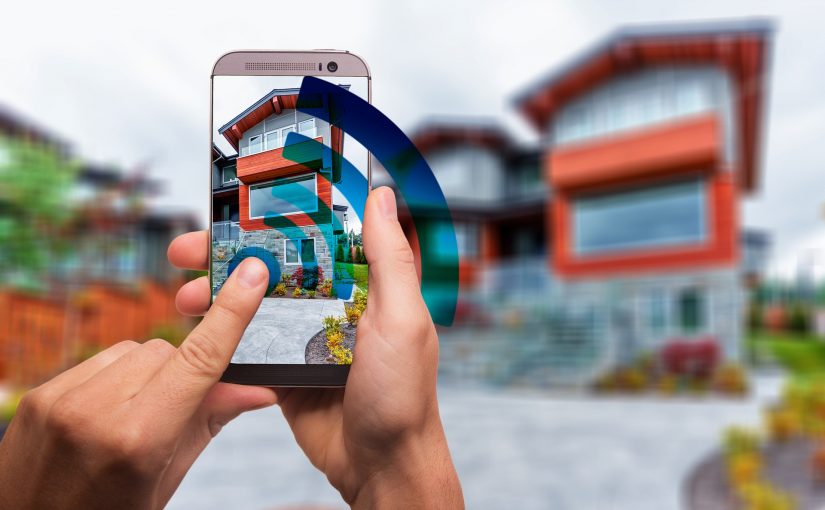The evolution of technology has branched out into different spheres of society, impacting it both positively and negatively. From our means of communication to even the manufacturing of food has been affected by technology. Similarly, the effects can also be seen in real estate.
Technological impact on real estate has increased significantly over the years, and it is accurate to say that it’s causing fundamental change. In this article, we will be discussing ten technology trends that are disrupting real estate today. Some of these trends are:
1. Artificial intelligence and machine learning
Artificial intelligence has evolved over the years, and it is now being used in the real estate market. Artificial intelligence involves the conversion of collected data into action. It helps in making smarter decisions because certain pattern recognition will be built into the system. Along this line, artificial intelligence in real estate algorithms and other technological-related frameworks will facilitate high-quality property management, including better lighting and security, among other important features. For instance, instead of searching for properties manually with a real estate agent, you can use an online real estate marketplace. An online real estate marketplace helps its users to streamline the home search process with artificial intelligence. According to the requests put in by the users, the AI brings out the best possible options.
2. Blockchain.
Blockchain is a relatively new development in the tech industry. Blockchain technology can be referred to as a decentralized, distributed ledger that records the provenance of a digital asset. In other words, blockchain makes digital assets transparent through the use of cryptographic hashing. Blockchain is significantly affecting real estate in terms of its record and information. Blockchain, through its processes, will significantly decrease fraudulent activities and property prices. Also, cryptocurrencies and their constant evolution will affect the real estate industry sooner or later.
3. Real Estate robots
Over the years, it has been a constant thought on the minds of technology developers to see if robotics can replicate the functions of humans. Although there hasn’t been any sign of its perfection, effective robots that perform crucial tasks have been created. For instance, real estate robots assist real estate agents in the performance of specific duties. Virtual assistants, robots, voice bots, or chatbots help consumers get quick answers to all their complaints on time. This enables good communication for both parties, thereby creating an effective business relationship. Pro-active real estate companies make use of these bots for the effective rendering of services.
4. Drones
Drones technology is also disrupting the whole process of real estate. They provide efficient aerial photography that helps create a fantastic virtual experience that can display how a certain property looks like. An additional function of drones that further proves their usefulness is the fact that they can provide visuals of areas that are inaccessible. This means that you can decide to purchase a property without even visiting the location, which enhances the comfortability of users. Also, drones can be used as a marketing strategy by real estate firms. By using features such as geolocation with drones, real estate agents can measure the quality of a property and the areas surrounding it.
5. Data automation
Various tasks in real estate that was usually performed manually can now be automated for ease of the process. For instance, processes like data collection, data scraping, data processing, and other tasks can now be automated to increase efficiency, i.e., making things done easier and quicker. As a part of real estate, marketing automation is already enabling real estate firms to deliver real-time messages to prospective buyers during the sales process, automatically boosting their efficiency level.
6. Big data
The whole concept behind ‘big data’ is to accumulate all possible information in a particular field and use relevant to answer requests. Big data, essentially, is the study and extraction of information from vast amounts of data. As it relates to real estate, big data helps in the collection or acquisition of data from customers, which is in the form of requests. These requests will be used to examine their behavioural patterns, which will be used to predict a user’s behaviour. Through these predictions, the best and appropriate options in terms of the user’s preferences will be matched.
7. Virtual reality
This aspect of technology has affected so many areas, which includes gaming and now real estate. Virtual reality makes the whole process of searching and buying properties exciting because interested or prospective buyers can get a virtual tour of the properties they are interested in remotely. An interested customer can now get a visible virtual tour of what they want before they make their decision. A crucial factor that triggered this process is the COVID19 era which further pushed virtual reality acceptance.
8. Mobile applications
From the start of the 21st century, the development of applications has been evolving, becoming crucial to society. You can order food, clothes and even equipment through apps that are specifically designed for such purposes. These same developments also apply to the real estate industry. There are various apps you can now use to buy, sell or rent properties and even contact agents that will put you through the whole process. It enhances convenience, and it ultimately saves time and stress. Due to the conveniences it brings, it is becoming a growing area in the real estate industry.
9. Safer buildings
Due to the COVID19 pandemic, properties will now be constructed with the occupants’ health benefits in mind. Technology has now become intertwined in the construction of most houses, thereby giving it a different outlook that would affect the real estate market. The new process spans a variety of means. Some of them include HEPA filters with UV lights and technological-related sanitization measures. This technology area will be important in updating existing real estate, and it will cause significant changes.
10. 5G
With the establishment of 5G technology, the whole process of communication can be more secure and consistent. With higher bandwidth, virtual tours of properties to remote buyers can go smoothly and effectively, ensuring stability in business. Furthermore, security, surveillance and maintenance will be optimized through the use of 5G technology in the real estate industry.
Final thoughts
For years, real estate and its intricacies have been growing along a certain line. However, with the addition and improvement of technology, a significant and irreparable effect has been made on the real estate industry.
About the author
Charlie Svensson is a skillful and engaging freelance and online essay writer. He is skilled in content writing, blogging and also in providing the best essay services. His contents usually center around education, social media, marketing, SEO, motivation blogging and self-growth, and he posts some of his works on college-paper.org review.
Image by FunkyFocus on Pixabay

